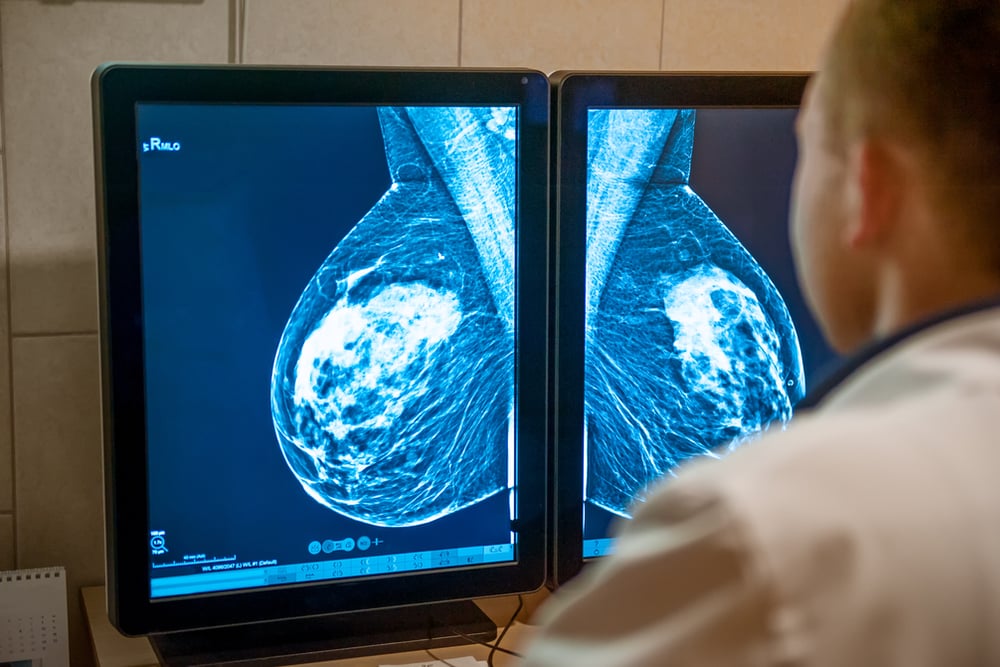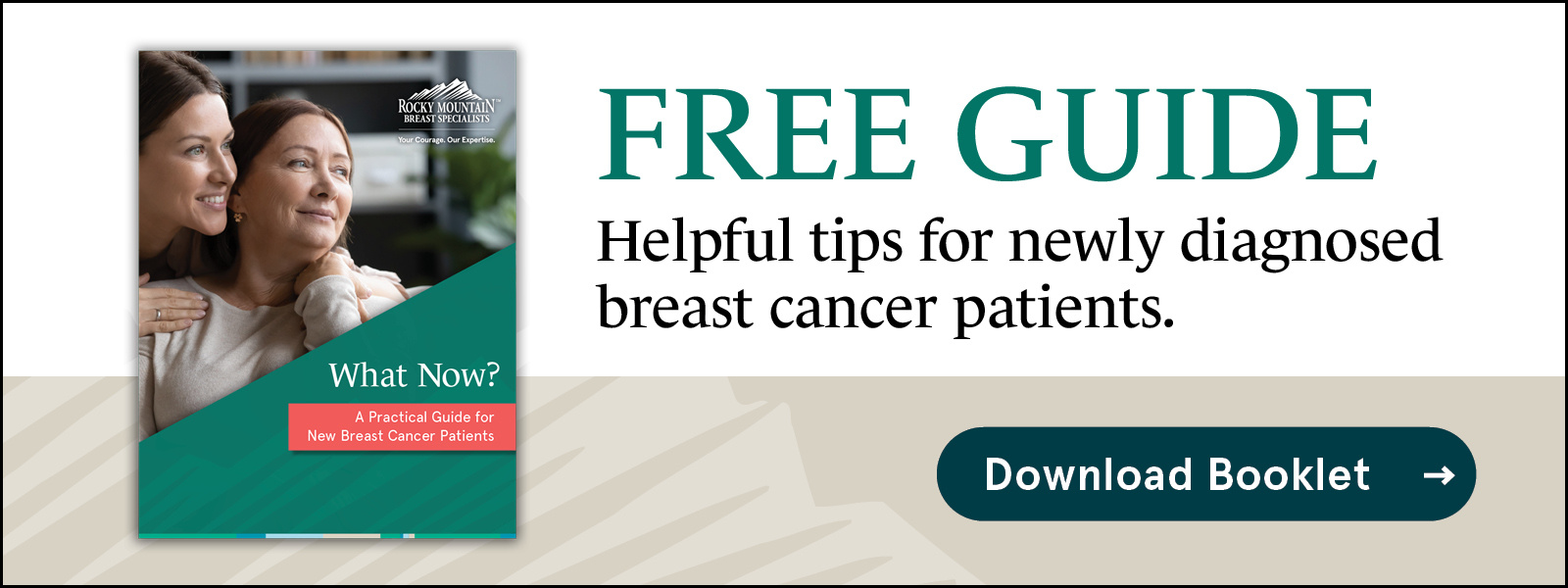What is the Best Treatment for Stage 0 Breast Cancer?
6 min read

When cancer is diagnosed, doctors use a staging system to describe how much the cancer has progressed and spread. Stage 0 breast cancer is the earliest stage, considered pre-cancer or non-invasive. In Stage 0 breast cancer, some abnormal cells have been found in the breast, which have cancer characteristics but they haven’t yet spread anywhere else. Early detection of breast cancer is important since it allows for close monitoring and prompt treatment that can prevent the cancer from continuing to grow into a more advanced stage.
What is Stage 0 Breast Cancer?
Ductal carcinoma in situ (DCIS) is the only type of breast cancer that will be staged at zero. Lobular carcinoma in situ (LCIS) used to be considered Stage 0, but is now considered pre-cancer.
DCIS is found in the tissues of the duct of the breast. Paget’s disease can develop in some patients if there is a ductal carcinoma present. This is rare and results in abnormal cells developing on the nipple and areola.
Learn more about the differences between ductal carcinoma in situ and lobular carcinoma in situ.
The main characteristic of stage 0 breast cancer is that it has not spread at all and is isolated to the area where the abnormal cells first formed. There are no lymph nodes affected and other tissue around the initial site where the abnormal cells were found
Cancer stages go up to stage 4, which is the most advanced stage and occurs when cancer cells have spread all the way to other body areas and organs. Watch our video that explains the various stages of breast cancer and how your lymph nodes can be affected.
Stage 0 breast cancer itself is not an immediate cause for concern. However, since this type of cancer can advance and spread, it should be closely monitored, and treatment is usually needed.
Whether or not your doctor recommends treatment for stage 0 breast cancer will depend on your age, family history, and the characteristics of the cancer itself such as the presence of hormone receptors and/or HER2 protein receptors.
Common Treatment Methods for Stage 0 Breast Cancer
A breast cancer specialist called a breast oncologist will be the lead physician overseeing your treatment plan. There are a few different approaches to treatment for Stage 0 breast cancer, including an option that allows your oncologist to monitor the growth of the cancer cells before treatment begins.
Active Surveillance
Active surveillance means that no immediate treatment methods are used. You would visit your breast cancer oncologist frequently so they can keep an eye on the cancer to ensure that it isn’t advancing. A breast MRI would likely be performed every 3-6 months. If the cancer does start to advance, you can promptly take action to prevent it from growing outside of the duct. Active surveillance of DCIS can go on for several years as long as the cancer does not advance further.
Breast Cancer Surgery
The most common treatment recommendation for stage 0 breast cancer is surgery. A breast cancer surgeon will be included in the treatment planning process.
Surgery involves removing the cancerous cells, and possibly some of the surrounding tissue as well. Most women with DCIS are able to have breast-conserving surgery, also called a lumpectomy, where the cancer cells are removed while still keeping the healthy area of the breast intact. A margin of tissue around the cancer cells is also removed to ensure that any cells that may have started to grow there are also removed.
If DCIS is found in several places throughout the breast, a mastectomy may be recommended.
Your breast cancer surgeon will help you understand which type of surgery would be most effective for you.
Breast Radiation Therapy
External beam radiation therapy uses high-energy beams to kill cancer cells. This treatment is typically used in combination with surgery to help prevent the cancer from coming back. Radiation therapy is more often recommended following a lumpectomy since there is still remaining breast tissue.
Hormone Therapy and Targeted Therapy: Are They Necessary for Stage 0 Breast Cancer?
Sometimes, hormone therapy and targeted therapy can be used to treat stage 0 breast cancer. If Stage 0 breast cancer is tested and found to be hormone receptor-positive, hormone therapy is likely to be included in the treatment plan. This treatment will block estrogen and/or progesterone receptors. This slows the tumor’s growth and makes it less likely that the cancer will come back.
Targeted therapy is another treatment method that may be used in treating stage 0 breast cancer if the cells test positive for HER2 protein receptors. Targeted therapy uses medications that can detect certain cell characteristics to bind to them and block them, stopping the cancer from growing. In this case it would block the extra HER2 receptors on the cancer cells to keep the cancer from growing.
Finding the Best Treatment Approach to Stage 0 Breast Cancer
There is a general treatment plan recommendation for patients with Stage 0 breast cancer. However, there are some variables that will change what needs to be done.
To find the best treatment approach for you, your breast cancer specialist will weigh out a variety of factors. These include:
- Tumor characteristics. How big is the area? Is there more than one area of cancer cells?
- Paget’s disease of the breast. If the cancer cells start to appear on the nipple area, it may be time to take action.
- Avoiding overtreatment. It’s important that Stage 0 breast cancer is not overtreated – causing side effects that may not be necessary if a watchful waiting approach can be used to see if the cancer starts to grow further.
- The patient’s general health condition. Someone who is older or has other health conditions may not be able to tolerate a more aggressive treatment approach, whereas those who are young and generally healthy may want to take a more aggressive treatment route to increase their odds of living a longer life.
It is important to work with a breast cancer team who will help with creating a personalized plan for you. This may require the work of multiple different providers in order to come up with a comprehensive treatment plan.
Learn more about who is on your breast cancer treatment team.
Follow-Up Care and Prognosis for Stage 0 Breast Cancer
It will be important for you to keep up with ongoing follow-up visits to your doctor to keep an eye on your cancer and watch for any growth or spreading if you’re on active surveillance. However, even if you’ve completed breast cancer treatment, you’ll need to see the oncologist to test for any signs of cancer returning. There are also the emotional and psychological challenges you may be facing, including concern about the cancer growing or returning. You may want to work with a psychology professional to help with the emotional challenges of dealing with cancer. Joining a local support group will also help. Talk with your doctor about what type of local resources and support options are available to you.
If your mammogram results showed an area of concern, it may be necessary to schedule with a breast cancer doctor to discuss the results and next steps. Learn more about what you can expect next.
Let the cancer experts at Rocky Mountain Breast Specialists guide you through your breast cancer treatment journey. Our breast cancer doctors care for patients in Denver, Colorado Springs, and Boulder. Request an appointment at a location near you.

